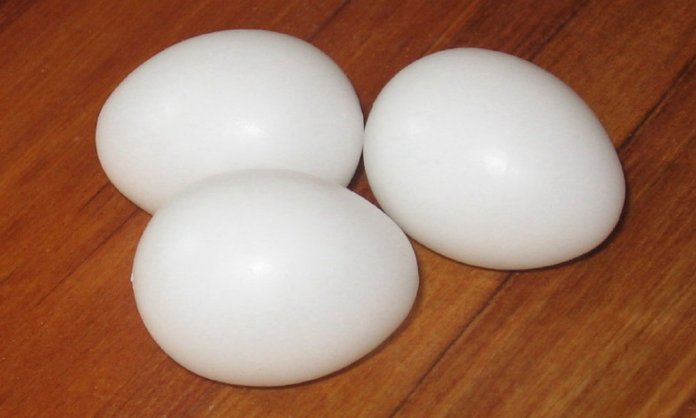Plastic eggs were recently found being sold in Karachi. A shop owner was arrested and the vendor was questioned.
Sindh Food Authority shared that these plastic eggs are hazardous for human consumption thus must be avoided.
It’s disgusting how in order to save some money, people are willing to sacrifice the health of others.
For now, there are two assumptions, either these eggs are being imported by China or are being created locally.
How are Plastic/Fake Eggs Made
The egg yolk and egg whites are being created by using sodium alginate which contains ingredients like gelatine, calcium and more. Water and food color is then added to give it a natural look to look like a real egg.
The sodium alginate is added in luke-warm water with food color to match an egg. Then it is showered with gelatine and benzoic acid with other chemicals to prepare the egg whites.
For the yolk, they simply use the pre-made formula of the sodium alginate and add yellow color to it. Both parts are brought using calcium chloride and sharped in the form of an oval (egg).
How to Identify Plastic Eggs
There are 6 signs that can help you identify the difference between plastic and real eggs.
1. Outer Shell Density
Fake plastic eggs have harder shells as compared to natural eggs. You will be able to tell the density of the hell by closely observing it. Moreover, inside the shell you’ll like a rubber-like coating.
2. Outer Shell Shine
Unlike plastic eggs, natural chicken eggs are not very shiny. The plastic eggs, on the other hand, will be reflecting light from the surface.
3. Fake Yolk Melts
As soon as you crack a natural egg, the yolk does not spread until you apply force or break the yolk yourself. With plastic eggs, as soon as you break the shell the yolk will get mixed with the egg whites.
4. Noises
When a natural egg is shaken, the egg does not make noises. However, when a plastic egg is shaken, a sound can be heard from within.
5. Burn the Shell
When the plastic egg’s shell is burnt, it starts turning black and smelling like burnt plastic.
6. Water Test
After boiling eggs, put them in water. If the egg sinks, the egg is natural but if it floats, it’s not a real egg.
Also, fake eggs can stay outside for a few days without going bad whereas natural eggs will go rotten if kept outside.
https://youtu.be/8EoKshWGWX8
Stay safe and stay tuned to Brandsynario for more news and updates.












































